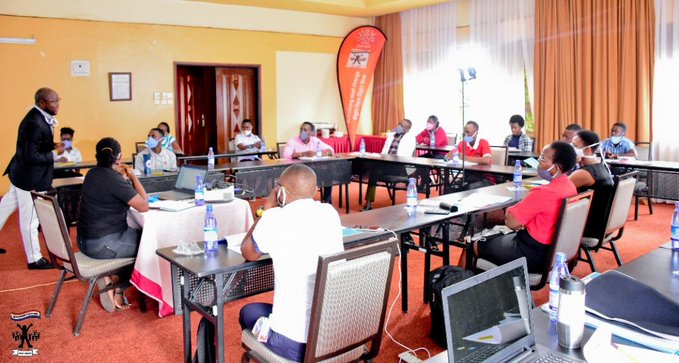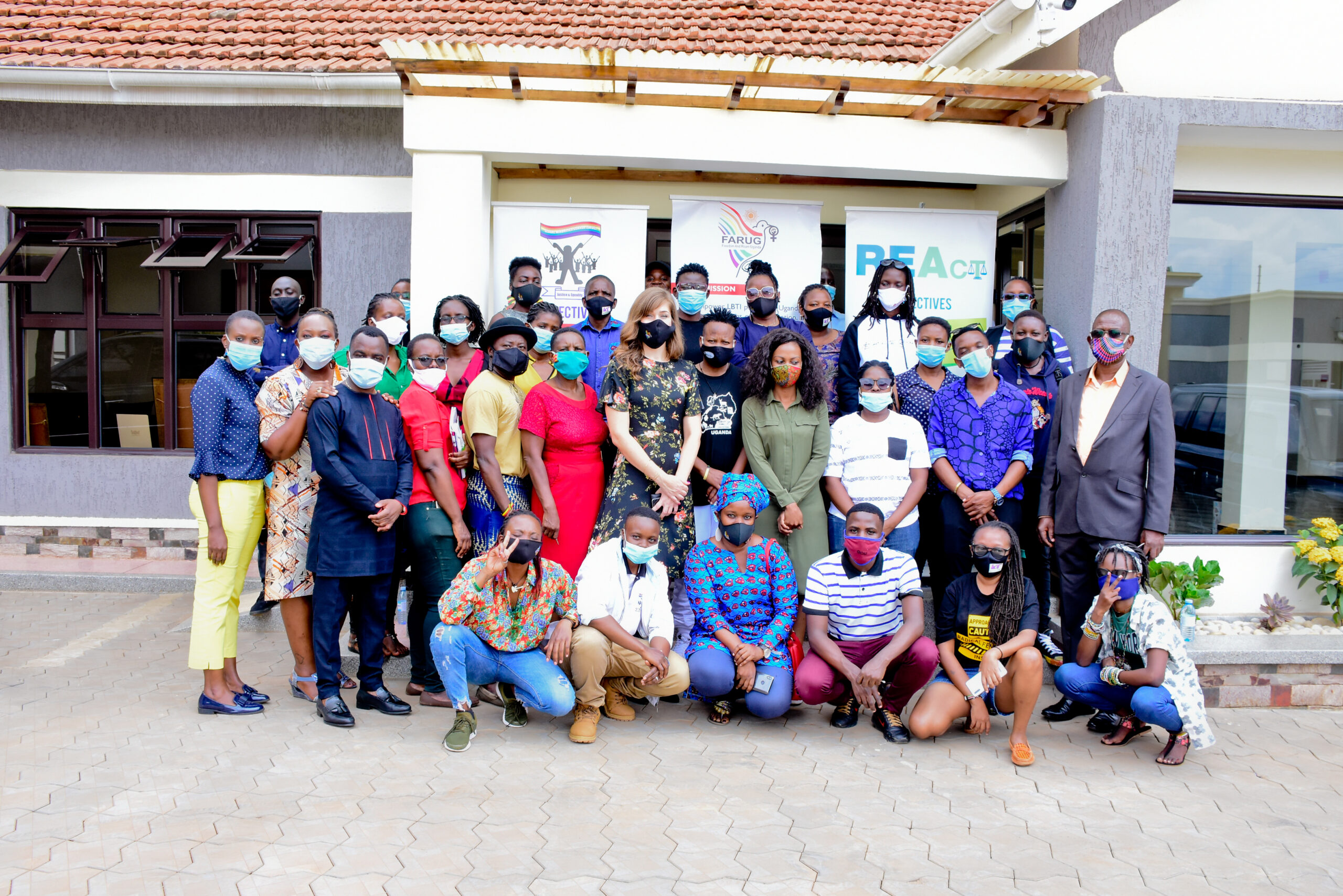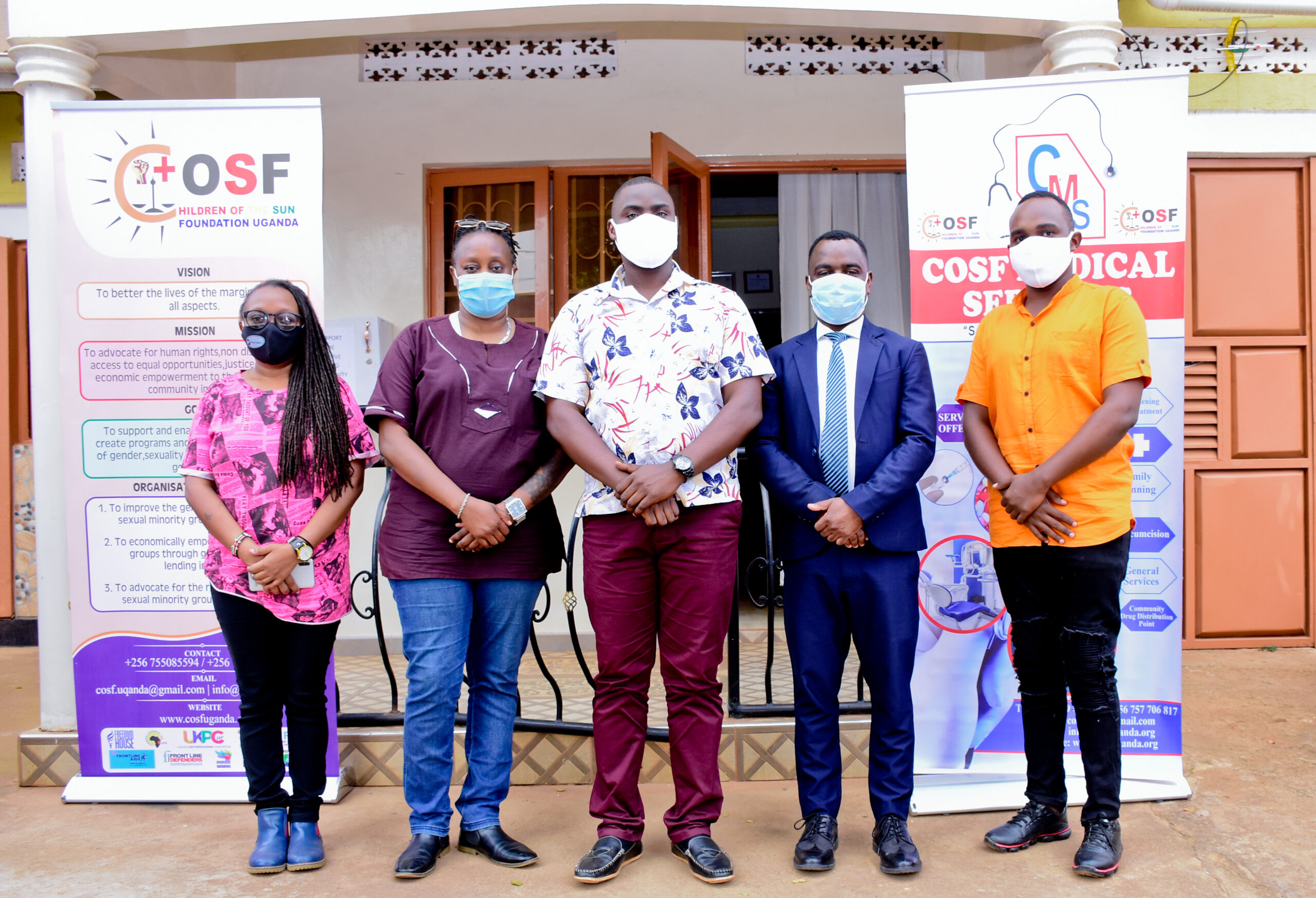Sexual Minorities Uganda joined Trans Equality Network as they marked the annual Transgender Day of Remembrance- TDoR. The members of TEU say the day is important for them to celebrate their identities with the vibrant members of the community here in Uganda and across the globe.
Sexual Minorities Uganda Programs Director Pepe Julian Onziema said, “Today is Transgender Day of Remembrance. I honor and pay respect to trans-people who have had violence used against them. I am a survivor, every day is survival. I am invested in the fight for the living, remembering to honor the departed.”
Executive Director TEU Beyonce Amooti Karungi says, “On this day we remember the tragedies that have struck the trans-community worldwide this year and in the past. We stand in solidarity and support with the members of the trans-community who have been victims of violence: we cannot sit and watch our rights be violated, we deserve better.”
Beyonce added that “TDoR must be more than one day; combating hatred and discrimination towards the transgender community must be a daily exercise. We call on our fellow Ugandans and allies internationally to move from sympathy for the lives of those who have been lost, to empathy and a communal responsibility to improve the lives of the transgender community in Uganda.”

Some members of Trans Equality Uganda at the event.
This year alone, a transgender man reported that he had been forced to leave a sports league he participated for years due to his gender identity. Most recently, Ariana, a transgender woman, was arrested on 20 October and taken to Katwe police station, where she was forced to strip naked. Photographers and media came to the station and subsequently published her photo, reminiscent of past outing campaigns in Uganda. Three other women, Sweet Love, Samali, and Shani were attacked by mobs between June and August, with no repercussions to the perpetrators.
According to a statement released on the same day TEU is set to begin engaging government institutions and the Ugandan media in dialogue in a bid to combat Transphobia in Uganda which remains pervasive and normalized, despite the nullification in 2014 of the Anti-Homosexuality Act.
“Vulnerability for physical assault against members of the LGBTI community is most prevalent amongst the most “visible” members of the community, particularly those that do not conform to strict Ugandan social and gender norms in their outward appearance. We fear that we may not know the full scale of attacks on the Trans community, particularly in the rural areas of Uganda, due to fears of harassment, intimidation, and stigma.” said the statement.




